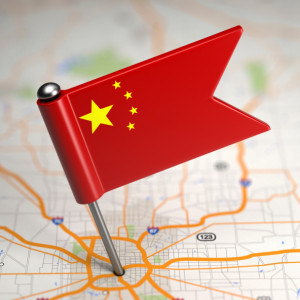5 Things I wish I Could have Known Before Establishing a China Supply Chain
September 22, 2017

We were all new importers at one time even if some of us (not me!) are now wise and savvy with our years of experience. We all remember things we wish we had known when we first started sourcing from China. Today, we see new importers popping up everywhere, they have new ideas, new products and the China supply chain is at the click of a mouse now. Anyone can import from China. But is it really as easy as it seems? Are there still things they will wish they knew once they get started? Below, I’ve outlined the top five things I have come across that most importers wished they knew before they established their China supply chain.
Chinese Business Customs
In China, the philosophy is that you never say ‘No.’ The idea is not just that you should grab any and all business opportunity, even if it doesn’t exactly suit you, and that you should give it your best shot. But it is also that the Chinese are very careful about making negative statements. Instead of ‘No,’ they’ll use ‘I’ll think about it,’ or ‘Maybe.’ Not just when negotiating a deal but also when handling the production. So when production is hopelessly behind and you ask if the goods will ready on time, they are likely to say “maybe”, will they be late? “a little, not much”.
Being aware of this makes it easier to prevent problems. And if you want to be effective in communicating with them, you should always stay calm, collected and controlled. Showing too much emotion can be very counter productive.
Assumptions
You know the old adage about ASS.U.ME. Never make any assumptions when it comes to any aspect of your China supply chain. Verify everything instead. You cannot assume that any of your manufacturers, for example, know how to make your product, much less how it SHOULD test out upon completion. Be as detailed and meticulous as possible when it comes to product specification sheets and inspection specification sheets.
Order Volume
The common belief amongst new importers is that the best way is to start small. However, placing a small order may do you more harm than good. You will have far less factories willing to work with you and far less enthusiasm for making your product a priority. If a larger order comes along, yours will be moved to the back of the line etc.. The best rule of thumb here is, if you have a small order, tell them it is a sample order and that much more will come. Note: If that is not true, you should not say it. But then again, you need to ask if China is the best place for such small orders.
Regional considerations
China is massive. You know most manufacturing is done near its East coast but limiting yourself to these regions may not be ideal. Manufacturers nearest to the ports may charge a lot more than manufacturers in the hinterland. And the quality may actually be better there.
Landed Cost and Time
Before you decide to move your supply chain to China or expand on an already existing supply chain in China, you will want to know your landed cost. What will your product cost, per piece, by the time it reaches your doorstep? You will need to factor in all costs, such as quality inspections, logistics, packaging, customs duties and tax, etc.; not just the Ex-works cost per piece that you are being charged by the factory. And then find out the delivery delays.
What were some things you wished you knew? What did you have to discover the hard way? Share your experiences with us in the comments below.
By Jocelyn Trigueros
